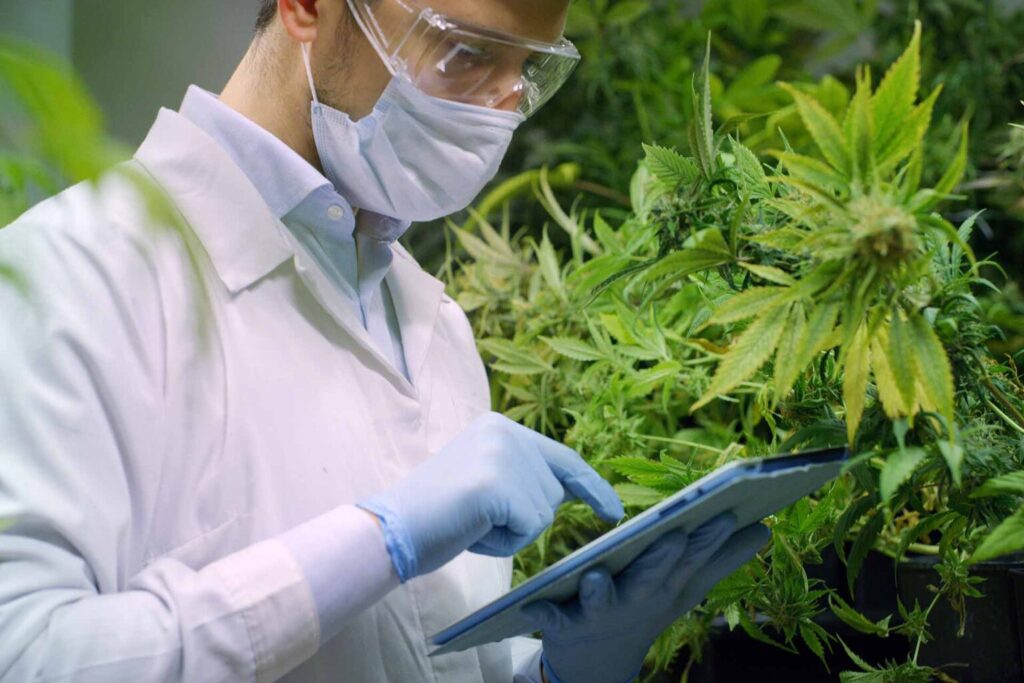Since the federal legalization of hemp-derived products, the market has expanded with thousands of new offerings. While CBD remains the most recognized cannabinoid, others like CBG and THCA have gained significant attention. This surge in popularity for minor cannabinoids has sparked an important question—does CBD still have a place in today’s market?
Researchers have continued their work studying CBD, revealing even more about its potential benefits and how it interacts with the body. These ongoing studies help renew interest in CBD, providing consumers with more reasons to keep it as part of their daily wellness routine.
New Research Highlights CBD’s Neurotherapeutic Potential
A recent review published in a 2025 edition of Biochemical Pharmacology examined how CBD interacts with the 5-HT1A receptor in the nervous system. This review analyzed previous research and provided insight into how this cannabinoid binds with the receptor and influences biological responses.
The 5-HT1A receptor is known as a major inhibitory receptor in the nervous system, playing a role in regulating various functions by connecting to intracellular signaling pathways. According to findings from a 2013 study, this receptor functions as both an autoreceptor and heteroreceptor, helping manage different responses through its connection with Gi/Go proteins.
The 2025 review found that CBD may help desensitize the 5-HT1A receptor. This desensitization suggests potential neuroprotective and antidepressant benefits. However, researchers also pointed out that the strength of this effect appears to depend on the amount of CBD consumed, highlighting the importance of serving size when using cannabinoid products.
New Research on CBD Absorption
In January 2025, researchers released findings showing that diet plays a role in how CBD is absorbed by the body. In the study, 12 participants ranging from 18 to 60 years old took CBD capsules containing 70mg of CBD approximately 30 minutes after eating a high-fat meal.
The researchers reported that healthcare providers and CBD users should understand that taking CBD with food significantly improves how much of it the body absorbs. They also noted that taking CBD consistently with meals may help achieve more reliable and effective results.
While the study included only a small group of participants, these early results add valuable insight into how CBD works in the body. The findings also emphasize the importance of understanding the timing and method of consuming hemp-derived cannabinoid products.

New Evidence on How CBD is Impacted by Heat
It is well known that THCA is turned into Delta THC when exposed to heat through a process called decarboxylation. A study published in February 2025 sheds new light on how CBD reacts to high temperature extraction. These findings expand our understanding of how this cannabinoid is affected when exposed to heat.
According to their findings, “CBD transformation degree is strongly affected by the humidity of the extracted hemp. The results presented in this work are important both for hemp analysis, including the research dealing with hemp metabolism, but also for functional food containing CBD.”
Is CBD Still Relevant?
Without a doubt, CBD is still relevant! New research has helped expand our knowledge surrounding this incredible cannabinoid and opened up new pathways on how it can be used within the medical and scientific communities. While there may be other cannabinoids that have had a spotlight shown on them in the past several years, CBD still can hold its own in the ring.
Studies and reviews like those detailed above are an important part of our developing understanding of hemp as a whole. As we continue to learn about this incredible plant, new pathways open up that offer possible solutions that did not exist before.
